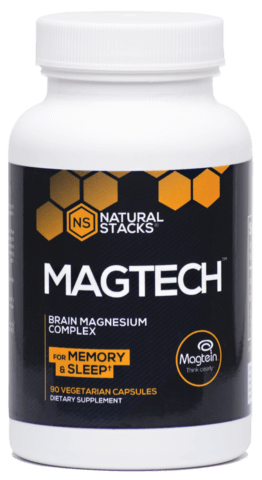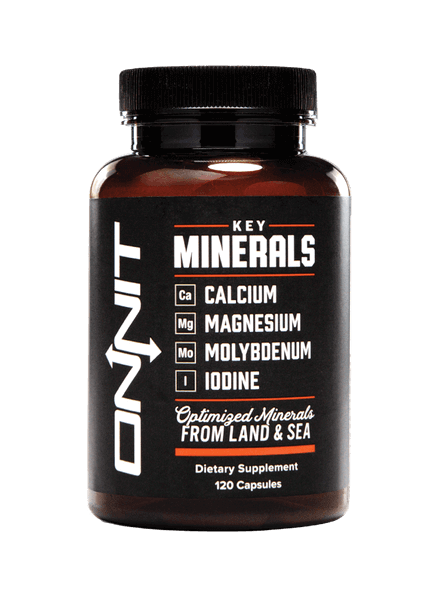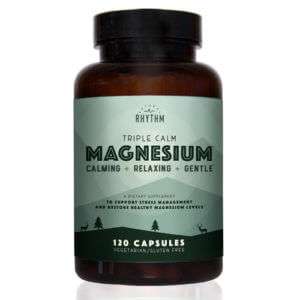What Is The Ideal Magnesium Dosage? (For All Uses)
It doesn’t matter what ails you – magnesium will make it better.
Magnesium is more than your average mineral. It helps maintain your DNA, RNA, regulates enzyme activity, and is necessary for energy production within cells.
Most Americans are deficient in magnesium, which can be dangerous. The recommended magnesium dosage daily for health varies slightly, depending on your age, sex and why you’re taking it.
What’s the Ideal Magnesium Dosage for Constipation?
Most forms of magnesium can be used to relieve constipation, but magnesium citrate has a high success rate.
It promotes peristalsis, the contraction, and relaxation of intestinal muscles, and pulls water into the intestines, making the stool softer.
The best magnesium dosage for constipation is 300 to 400 mg a day. A dosage of over 400 mg a day may cause diarrhea in the short-term and lead to kidney disease if taken for a prolonged period.
If you have chronic constipation, you may have a magnesium deficiency.
Instead of relying on magnesium citrate when you become constipated, make sure you eat leafy greens, whole grains, yogurt and other foods containing magnesium daily. This will avoid this discomfort.
The Best Magnesium Dosage for Sleep
Magnesium is called the “relaxation mineral” because it loosens tight muscles or a tight mindset (e.g. anxiety, depression). It actively relaxes constricted blood vessels and stiff muscles, like the leg cramps you get at night.
Melatonin is often cited as the go-to natural supplement sleep, but it comes with more cons than pros.
It will make you feel sleepy, but won’t help you fall asleep. Magnesium works on your muscles, relaxing you biological functions and helping you unwind.
In this video, Rick Gold of Gold Function Wellness talks about the importance of quality sleep, and how magnesium can help you get it.
Sleep series #1 Magnesium Citrate
https://www.youtube.com/watch?v=ZhMUHUAlBfA
Make sure you get at least 300 mg of magnesium a day. People who suffer from chronic insomnia can benefit from a higher dosage of between 400-1000 mg.
If you’re unable to get all of it from food, take a highly absorbent form of magnesium like magnesium orotate or magnesium citrate.
Quality sleep is one of the cornerstones of good health.
The Best Magnesium Dosage for Migraines

Research shows many migraine sufferers have low magnesium levels. By taking a magnesium supplement, you can reduce the number and intensity of headaches.
Magnesium relaxes blood vessels in the brain, boosts platelet function, and blocks Substance P and other pain-transmitting brain chemicals.
The American Headache Society’s “Headache Toolbox” recommends the use of magnesium to treat migraines and cluster headaches.
Magnesium oxide pills in doses of between 400-500 mg a day can help prevent brain signaling waves, which many migraine sufferers experience. Women who experience migraines during their menstrual periods can also get relief from a magnesium supplement.
The Ideal Magnesium Dosage for Anxiety
Magnesium is often overlooked as a natural treatment for mild to moderate anxiety. If you are constantly on edge, and even occasional stress sets your anxiety into full gear, a magnesium deficiency may be to blame.
Magnesium reduces cortisol, a stress hormone that contributes to anxiety, and stimulates the production of the relaxing brain chemical GABA. It’s one of the few nutrients capable of increasing your brain’s neuroplasticity and rewire it to think more calmly and efficiently.
The University of Michigan Health Center recommends a dose of between 600-900 mg of magnesium a day to treat mild anxiety. Alternatively, you can add a cup of Epsom salt (magnesium sulfate crystals) to your bath and soak for 15-20 minutes a day.
What’s A Safe and Effective Magnesium Dosage for Your Child?

The National Institute of Health recommends the following magnesium dosages for children:
- Birth to 6 months: 30 mg
- 7 to 12 months: 75 mg
- 1 to 3 years: 80 mg
- 4 to 8 years: 130 mg
- 9 to 13 years: 240 mg
Like calcium, magnesium is essential for building strong bones and teeth. It promotes muscle contraction and nerve function and keeps kids calm and balanced.
Lack of magnesium in a child’s diet can lead to ADHD, irritability, nervousness and muscle cramps. Let’s face it; kids don’t like to eat their leafy green vegetables (which are loaded with magnesium), so you may need to give your child a chewable or liquid magnesium supplement instead.
The Safest Magnesium Dosage for Weight Loss
Magnesium’s calming effects help banish emotional eating, leaving you in a better mood to exercise or perform other tasks instead of binging on your favorite comfort food.
Lack of sleep, another cause of overeating, is remedied by getting the RDV of magnesium daily (310 mg for women under 30, 320 mg for women over 30).
Magnesium also helps reduce the bloating you experience during your period.
If you experience chronic constipation, it can add a few pounds to your frame. Stay regular by taking a magnesium supplement and eating more fruits, yogurt and veggies.
Magnesium also reduces the chance of developing metabolic syndrome, a condition that leads to a fat belly, high blood pressure, and diabetes.
Stay Fit and Healthy with Magnesium
According to the National Institute of Health, the recommended dosage for magnesium for the average person is 400 to 420 mg a day for men, and 310 to 320 mg for women.
If you can’t eat enough magnesium-rich food during the day, check out the following magnesium supplements. They’ll keep your body functioning at peak level, and help you control anxiety, migraines, insomnia and other health problems:
Natural Stacks MagTech
Onnit Key Minerals
Natural Rhythm Triple Calm Magnesium
Final Words
As you can see, magnesium has a lot of promising benefits for one’s health given that you take the ideal magnesium dosage.
Have you used magnesium to treat anxiety, migraines, poor sleep or other health problems? Let us know how it worked for you in the comment section.
[catlist excludeposts=this template="div" conditional_title_tag="h6" conditional_title="Other Magnesium resources" id="195" tags="using"]




